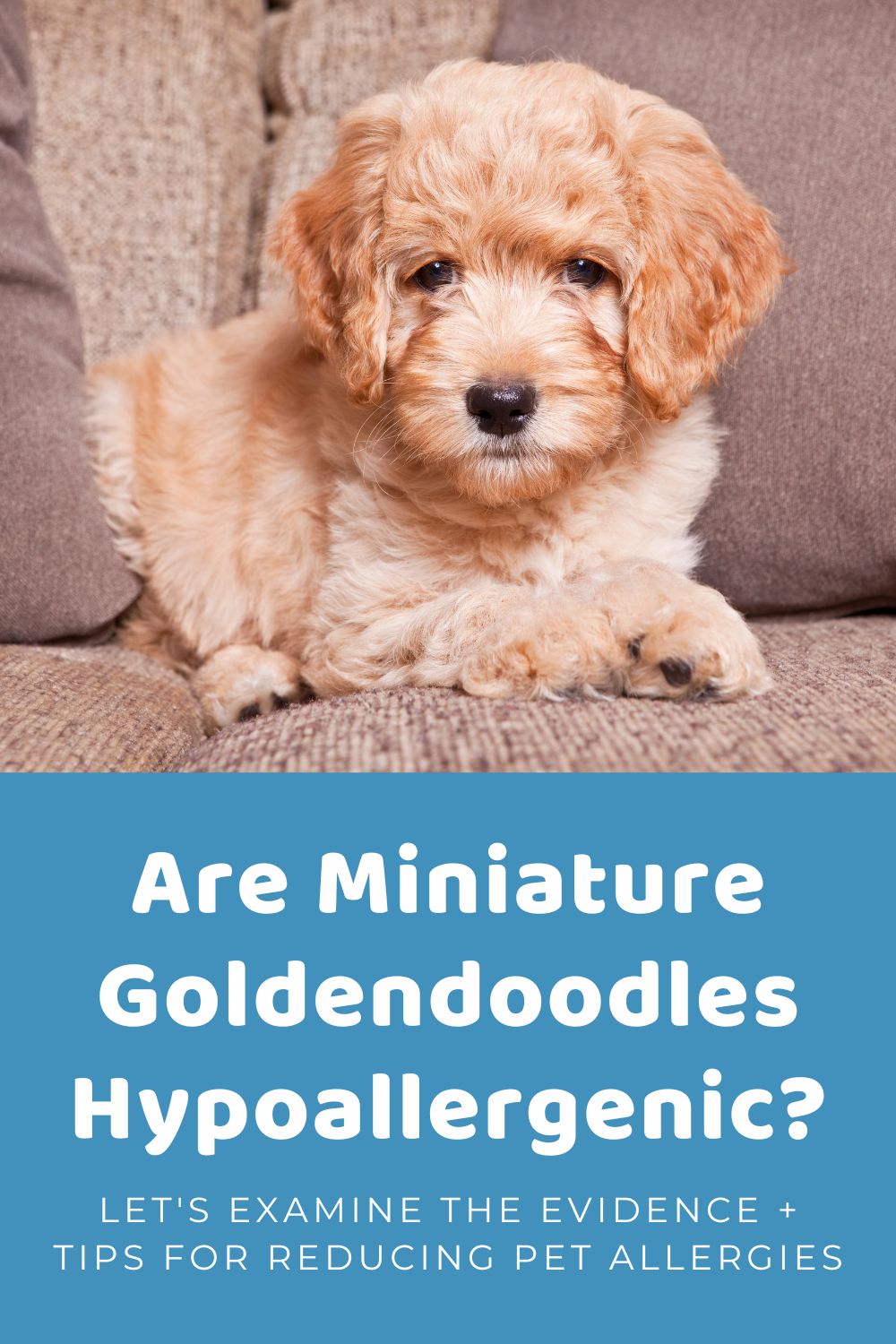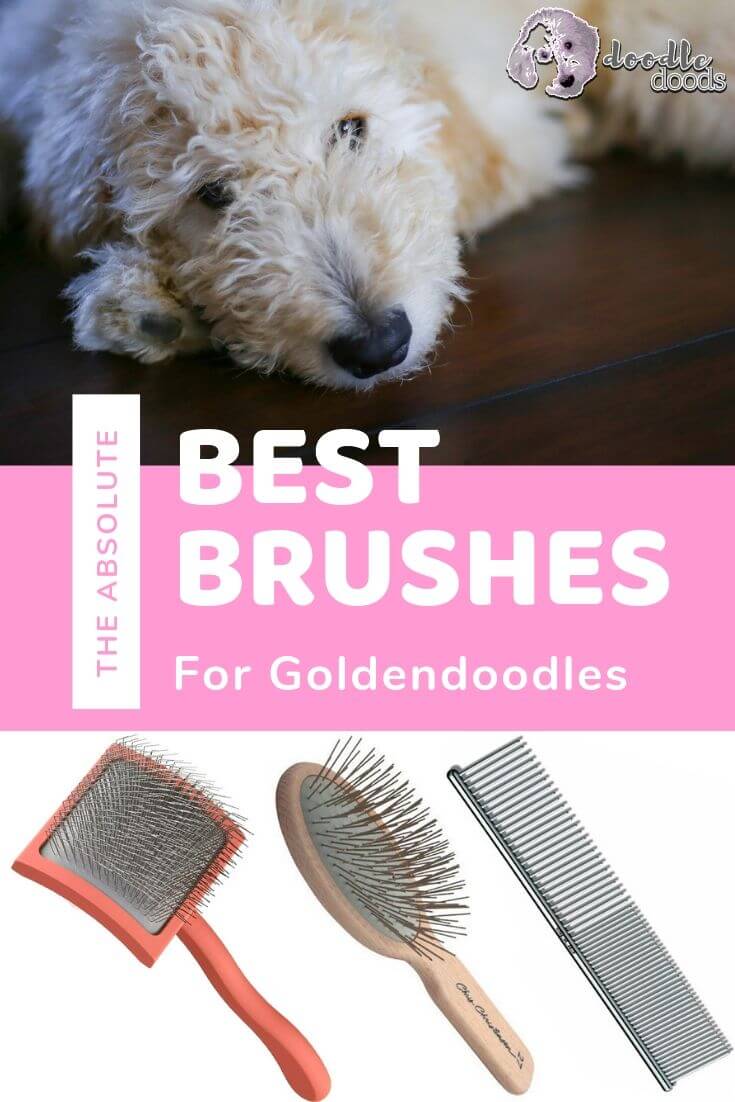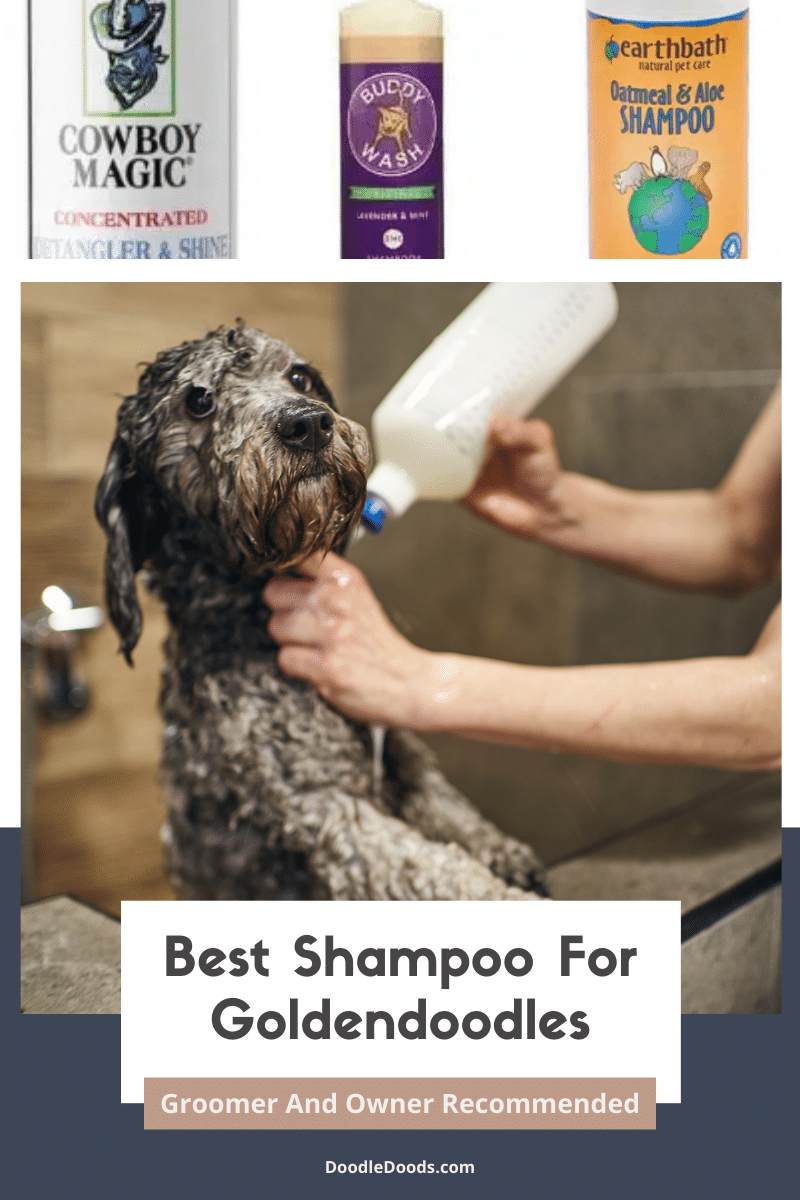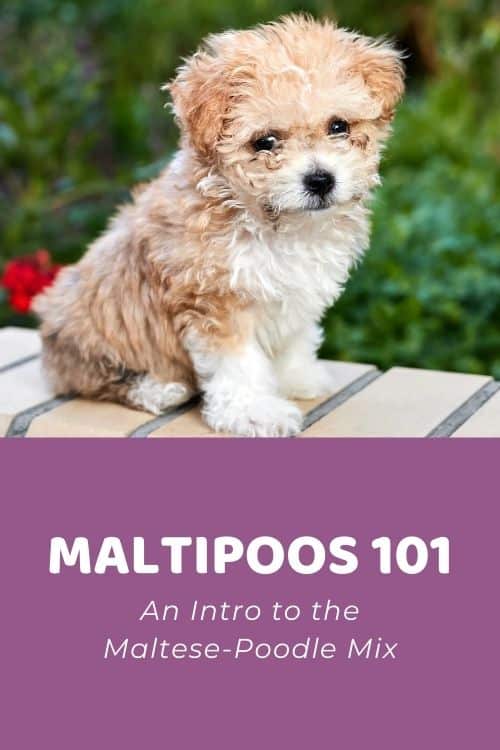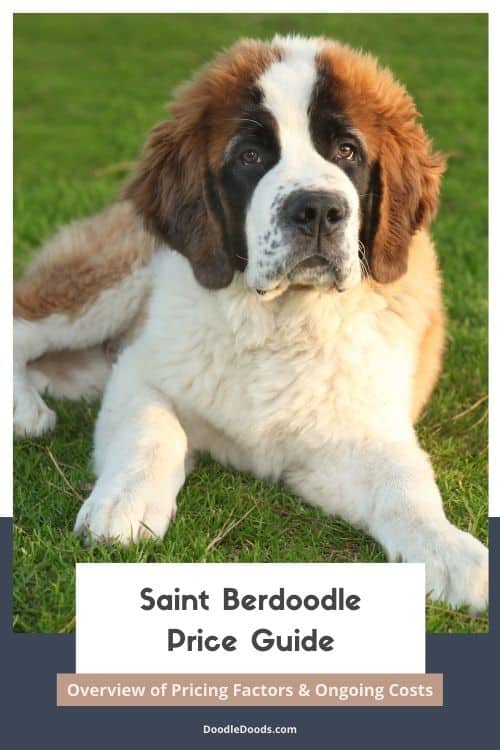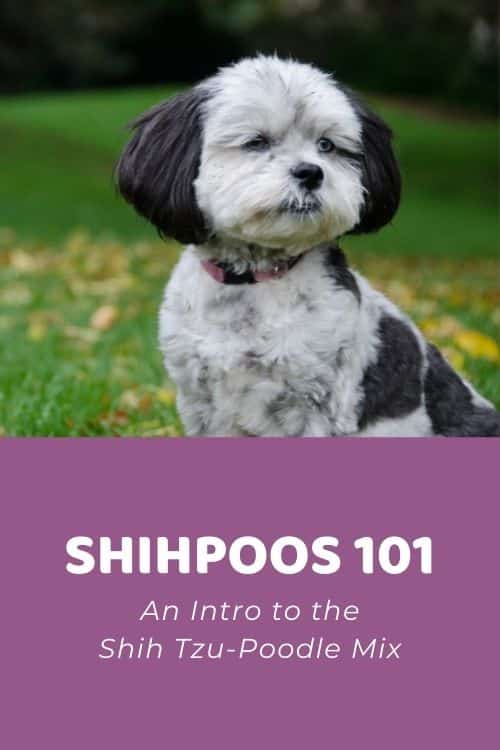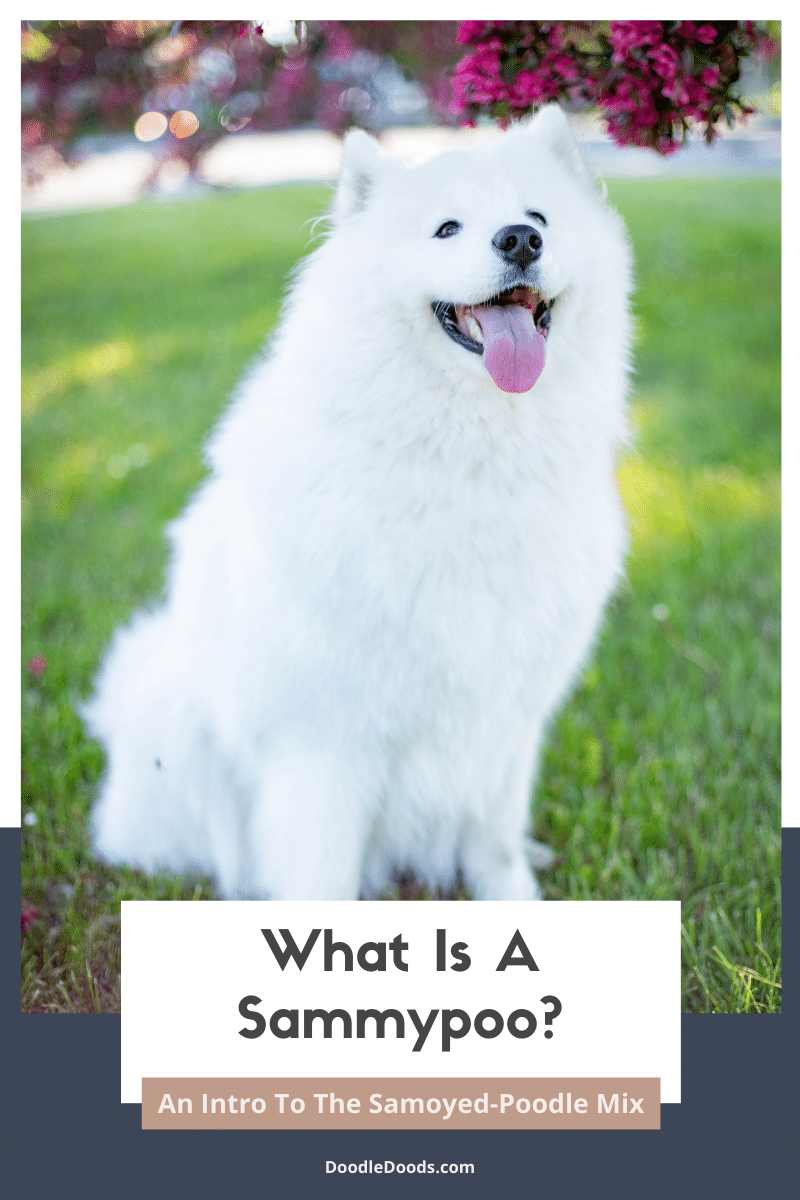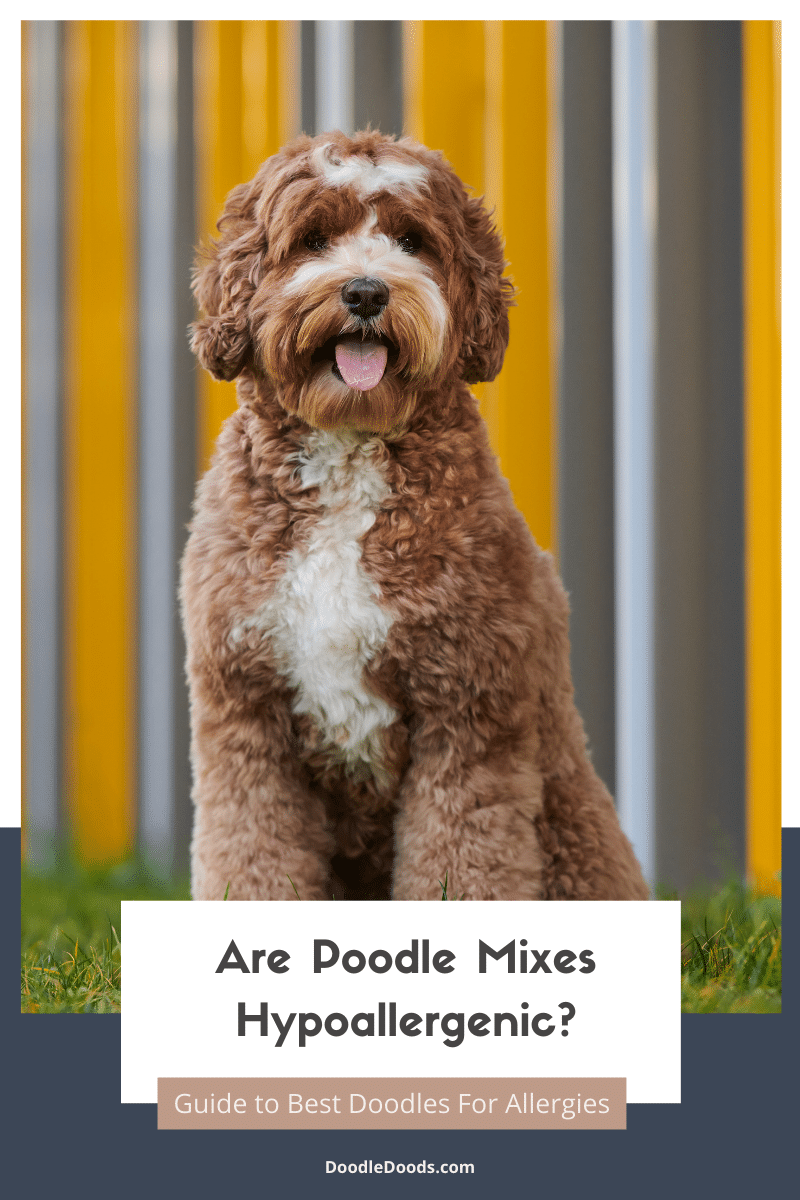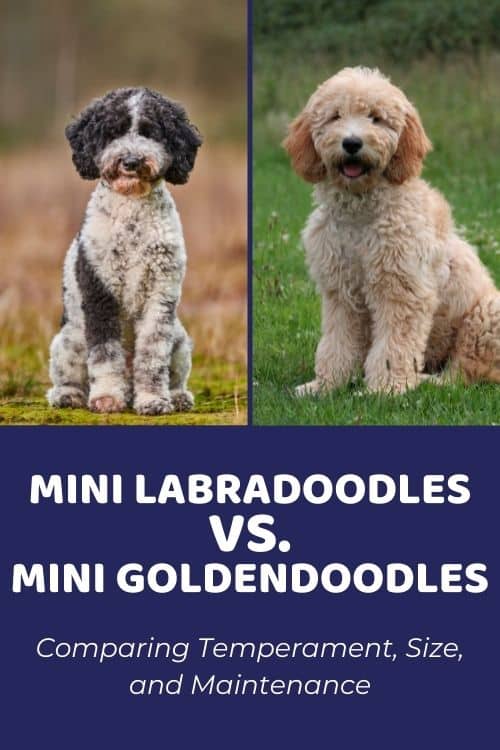Are you looking for a small hypoallergenic dog, but don’t want to give up the fun-loving personality of a Golden Retriever? A Miniature Goldendoodle might be the perfect solution! But are Miniature Goldendoodles hypoallergenic? Is a Mini Goldendoodle a good fit if you struggle with dog allergies? That’s what we’re going to find out in this very article, so keep on reading.
The Goldendoodle is a cross between the Golden Retriever and Poodle. They come in three size categories: Standard, Medium, and Miniature. Standard Goldendoodles weigh about 50 to 90 pounds, Medium Goldendoodles weigh between 35 and 50 pounds, and Miniature Goldendoodles generally weigh under 35 pounds with the smallest Toy Goldendoodles weighing as little as 10 pounds.
Understandably, neither the Golden Retriever or a Standard Goldendoodle may not be the best fit for many people. For instance, they’re quite large and they may not have the most comfortable life in an apartment setting. Or maybe you simply prefer a smaller Dood!
Fortunately, the Goldendoodle is quite an established crossbreed, so there are plenty of other sizes to choose from. But are Miniature Goldendoodles hypoallergenic like their Standard-sized counterparts?
Table of Contents
- Are Miniature Goldendoodles Hypoallergenic?
- Understanding The Mini Goldendoodle Coat
- Are Miniature Goldendoodles Hypoallergenic? Comparing Miniature Goldendoodle Generations & Their Hypoallergenic Potential
- Common Allergic Reactions In Humans
- Tips For Managing Allergies
- Are Miniature Goldendoodles Hypoallergenic? Frequently Asked Questions
- Are Miniature Goldendoodles Hypoallergenic? Final Thoughts
Are Miniature Goldendoodles Hypoallergenic?
Indeed, just like other Poodle mixes, Miniature Goldendoodles are hypoallergenic dogs. In fact, Goldendoodles were first created in the 1960s to achieve a hypoallergenic guide dog, since they greatly benefit from the low shed Poodle genes in their genetic makeup. In contrast to the heavily shedding Golden Retriever, the Goldendoodle has been one of the top choices for people that have allergies.
On the other hand, this doesn’t necessarily mean that all Miniature Goldendoodles are hypoallergenic, nor are all Mini Goldendoodles suitable for people who suffer from severe allergies.
To be fair, there’s no such thing as a truly, 100% hypoallergenic dog, as even Poodles shed some hair. However, the Poodle’s curly coat traps in any loose, dead hair. This means that they’re less likely to trigger allergies in people.
Moreover, it’s actually not the dog hair that causes and triggers allergies, but the proteins found in dog saliva, dander, and urine. But since dogs tend to lick themselves and they do have dander, loose hair will trigger allergies as they spread around the saliva and dander particles around your house.
That’s why Poodle mixes like the Goldendoodle have become so increasingly popular in recent years. They make excellent pets for people who cannot otherwise adopt the ever so loving Golden Retriever.
Still, if we want to answer the question “Are Miniature Goldendoodles hypoallergenic?”, we need to consider a few different things.
Understanding The Mini Goldendoodle Coat
The hypoallergenic potential of a Miniature Goldendoodle depends on several factors, including coat type and generation. The coat type of a Goldendoodle can be either straight, wavy, or curly.
Curly Coat
Miniature Goldendoodles with curly coats are considered the most hypoallergenic of them all. After all, they inherit most of their traits from the Poodle parent. These pups come with thick and textured curls and they don’t have undercoats. They shed very minimally, if any at all. This makes a curly-coated Miniature Goldendoodle the best choice for you if you struggle with severe dog allergies.

Straight Coat
On the other end of the spectrum we have straight coat Miniature Goldendoodles. The straight coats are more similar to that of a Golden Retriever. As a result, these pups often have double coats, meaning that there’s usually some shedding. For this reason, a straight-coated Miniature Goldendoodle wouldn’t be the best fit if you’re looking for a low shed and hypoallergenic dog.

Wavy Coat
Lastly, there’s the wavy combination coat that’s neither straight nor curly. Wavy-coated Miniature Goldendoodles may have an undercoat, but they generally tend to shed little. However, as wavy coats may come with a shedding undercoat, it’s important to consider how severe your allergies are.

Miniature Goldendoodles with wavy coats are more likely to be hypoallergenic than those with straight coats. Meanwhile, curly coats are even more hypoallergenic than wavy coats, making them the safest choice for people with serious allergies.
Are Miniature Goldendoodles Hypoallergenic? Comparing Miniature Goldendoodle Generations & Their Hypoallergenic Potential
The coat type of your Doodle is important, but it’s not the only thing you should be taking into consideration. Interestingly, generation can also indicate your Mini Goldendoodle’s hypoallergenic potential.
To put it simply, Goldendoodle generations tell us how the litter of puppies was bred, and how much of their genetic makeup roughly consists of either of the parental breeds. As you probably guessed, this gives us a better understanding of the outcome. On the other hand, keep in mind that there are no guarantees with crossbreeds. After all, we’re combining two different purebred dogs, and the outcome can lean on either side.
Like other Poodle mixes, Goldendoodles can be either first-generation (F1), second-generation (F2), or multi-generation (F3). Then there are also all sorts of backcross generations, which make the whole thing even more complicated. Let’s take a closer look:
| 1st Parent | 2nd Parent | % Golden Retriever* | % Poodle* | |
| F1 Goldendoodle (first-generation) | Golden Retriever | Poodle | 50% | 50% |
| F1B Goldendoodle (first-generation backcross) | F1 Goldendoodle | Poodle | 25% | 75% |
| F1BB Goldendoodle (first-generation backcross backcross) | F1B Goldendoodle | Poodle | 12.5% | 87.5% |
| F2 Goldendoodle (second-generation) | F1 Goldendoodle | F1 Goldendoodle | 50% | 50% |
| F2B Goldendoodle (second-generation backcross) | F1 Goldendoodle | F1B Goldendoodle | 37.5% | 62.5% |
| F2B Goldendoodle (alternate cross) | F2 Goldendoodle | Poodle | 25% | 75% |
| F3 / Multigen Goldendoodle | F1B Goldendoodle or higher | F1B Goldendoodle or higher | Varies | Varies |

Are F1 Miniature Goldendoodles Hypoallergenic?
F1 Miniature Goldendoodles have a Golden Retriever parent and a Miniature Poodle parent, making their genetic makeup a rough 50-50 mix of both parental breeds. Although Miniature Goldendoodles are considered hypoallergenic, it’s difficult to predict how a litter of F1 Miniature Goldendoodles may turn out. Some pups may take more after the Poodle parent, whereas others may inherit their traits mostly from the Golden Retriever. Because of this, F1 Miniature Goldendoodles may not be the safest choice for people with severe dog allergies.
Are F1b Miniature Goldendoodles Hypoallergenic?
F1b Miniature Goldendoodles, on the other hand, are bred from an F1 Miniature Goldendoodle and another Miniature Poodle. This means that their genetic makeup is roughly 75% Poodle and 25% Golden Retriever. As a result, these pups are more likely to inherit the low shed Poodle genes, making them a much better fit for people with allergies.
By the way, many breeders actually prefer to breed Miniature Goldendoodles as backcross generations due to the size difference of purebred Golden Retrievers and Miniature Poodles. This will give breeders more control over the puppies’ size and also hypoallergenic potential.
Are F1bb Miniature Goldendoodles Hypoallergenic?
F1bb Miniature Goldendoodles may be the most hypoallergenic, as they have an F1b Miniature Goldendoodle parent and a Miniature Poodle parent. F1bb Doods have a whopping 87.5% Poodle in their genetic makeup, making them the best choice for people with severe dog allergies.
Even though F1b Miniature Goldendoodles are generally a great option for people with dog allergies, the F1bb Miniature Goldendoodle is even more likely to inherit the Poodle’s hypoallergenic coat.
Are F2 Miniature Goldendoodles Hypoallergenic?
F2 Miniature Goldendoodles have a very similar genetic makeup to F1 Miniature Goldendoodles. F2 Mini Goldendoodles are created by crossing together two F1 Mini Goldendoodles. Since they have a 50-50 mix of both parental breeds, we have to take into account that they may shed hair. For this reason, they may not always be the best choice for people with severe allergies.
But as we mentioned earlier, it all comes down to each puppy’s unique genetic makeup and how much they inherit from their parents. In addition to that, many reputable breeders specializing in F2 Miniature Goldendoodles extensively test their parent dogs not just for health and genetic conditions, but also coat type and shedding levels. Since the goal is to breed low shed and hypoallergenic dogs, it’s very likely that the breeder has chosen allergy-friendly F1 Miniature Goldendoodles as parents.
Are F2b Miniature Goldendoodles Hypoallergenic?
Similarly to F1b Miniature Goldendoodles, F2b pups have roughly 75% Poodle and 25% Golden Retriever in their genetic makeup. This means that F2b Miniature Goldendoodles are likely to be hypoallergenic and shed very minimally.
Are F2bb Miniature Goldendoodles Hypoallergenic?
Like F1bb Doods, F2bb Miniature Goldendoodles have 87.5% Poodle and 12.5% Golden Retriever in their genetic makeup. Based on this, we can expect F2bb Miniature Goldendoodles (along with F1bb Miniature Goldendoodles) to be the most hypoallergenic of them all.
Common Allergic Reactions In Humans
Although Miniature Goldendoodles are hypoallergenic for the most part, this doesn’t guarantee that a low-shedding dog won’t trigger any allergies. As we discussed earlier, dog allergies in humans are triggered by the proteins in dog dander, saliva, and urine.
When these proteins come into contact with the human respiratory system, they can cause an allergic reaction. All of these particles can be found in a dog’s fur, on their bedding, and in the air around them. If you are allergic to dogs, you may experience symptoms when you are around them or when you are cleaning up after them. You may also have a reaction if you touch something that has been contaminated with dog dander. Or even when you get kisses from your four-legged pal.
The most common symptoms of dog allergies are sneezing, runny nose, congestion, and itchy eyes. Some people also experience hives, swelling, or difficulty breathing. If you experience any of these symptoms after coming into contact with a dog, it’s likely that you’re allergic to them.
Tips For Managing Allergies
If you’re considering a Miniature Goldendoodle, but you’re allergic to dogs, you may be able to reduce your symptoms by taking some steps to limit your exposure to dog allergens. There are several ways to manage your allergies, and they don’t even require that much effort on your part!
While it’s not always possible to completely eliminate your exposure to dog allergens, the tips below can help you reduce your symptoms and make it easier to live with your allergies.
1) Groom Your Dood
One of the best ways to manage dog allergies is to groom your dog regularly to remove any allergens that may be trapped in their coat. This can be done with a brush and comb, even a simple bath can help.
When bathing your Dood, make sure to use a good dog shampoo that won’t irritate your pup’s skin, as Goldendoodles are prone to skin issues. If your pup struggles with skin dryness, you don’t want to wash them too often, as it can lead to excessive shedding, which in turn can trigger even more allergies. Additionally, you may want to try using an anti-dandruff or anti-dander dog shampoo that helps neutralize allergens.
Groom your dog in a well-ventilated area to avoid breathing in any allergens, and don’t forget to wash your hands afterwards! Of course, we recommend that you brush your Mini Goldendoodle regardless if you’re allergic or not, as these pups are prone to matting.
2) Vacuum & Dust Regularly
Another way to reduce your exposure to dog allergens is to vacuum and dust regularly. This will help remove any allergens that may be settled on surfaces in your home.
If you share your bed with your dog, it’s important to wash your bedding often to remove any allergens that may be on the fabric. Wash your sheets, pillowcases, and blankets in hot water at least once a week. The same goes for any other soft surfaces around the house, such as the curtains or your living room couch.
You may also want to consider using dust mite covers for your pillows and mattress to further reduce your exposure to allergens.
3) Consider Buying An Air Cleaner
Although you can greatly reduce your allergy symptoms by cleaning the surfaces in your home, you won’t be able to catch the invisible allergens that are floating around in the air. For this, we recommend you look into an air purifier, as they can help remove these allergens from the air and improve your indoor air quality. Air purifiers work by drawing in contaminated air and running it through a series of filters that trap the allergens. Be sure to use a HEPA filter to trap even the smallest particles.
4) Choose The Right Food For Your Dood
Did you know that your Goldendoodle’s diet can actually be the cause of excessive shedding, thus triggering your allergies? Like other Doodles, Goldendoodles often have sensitive stomachs, and they can struggle with allergies themselves. The most common symptom of these issues is excessive shedding.
That’s why choosing the right kibble for your pup is so crucial – you want to keep your pup healthy and also minimize your own allergies. Understandably, choosing the right food for your dog can be a difficult task, especially if they’re allergic to common proteins, such as chicken. Dogs may also react negatively to all sorts of artificial preservatives, flavors, and colorants in their food. To help you with that, we’ve created our ultimate guide on the best food brands and formulas for Goldendoodles.
5) Consider Medications & Supplements
Lastly, if you have quite severe dog allergies, we recommend you try medications and supplements that are designed to reduce allergy symptoms. Some people find antihistamines and nasal sprays helpful.
In addition to that, consult with your veterinarian about the appropriate supplements to give your Dood. For instance, omega oil supplements can help with skin and coat health, and therefore minimize excessive shedding.
Are Miniature Goldendoodles Hypoallergenic? Frequently Asked Questions
Yes, Miniature Goldendoodles are hypoallergenic. Thanks to their Poodle heritage, Miniature Goldendoodles generally come with low-shedding coats, which are less likely to trigger allergies.
However, not all Miniature Goldendoodles are hypoallergenic or suitable for people with severe dog allergies. So, it’s important to consider the coat type and generation of your Doodle as well.
Generally, curly-coated Miniature Goldendoodles shed the least and are the most hypoallergenic of them all. In addition to that, we recommend you look into a backcross generation, such as F1b, F1bb, F2b, or F2bb, as these pups have a higher percentage of Poodle in their genetic makeup, and they’re most likely to be hypoallergenic.
Are Miniature Goldendoodles Hypoallergenic? Final Thoughts
If you’re allergic to dogs but want to adopt one anyway, it’s important to do your research and choose a breed that is less likely to trigger your allergies. For people that struggle with allergies, a Miniature Goldendoodle is a great option.
The bottom line is that Miniature Goldendoodles are hypoallergenic dogs that are unlikely to trigger allergies in humans. However, there is no guarantee that a low-shedding dog won’t cause any reactions. So, it’s important to take some steps to limit your exposure to dog allergens if you are allergic to them. Regular grooming, vacuuming, and dusting can help reduce the amount of allergens in your home, as well as choosing the right food for your pup.
Learn How to Stop Shavedowns For Good & Keep Matting At Bay!
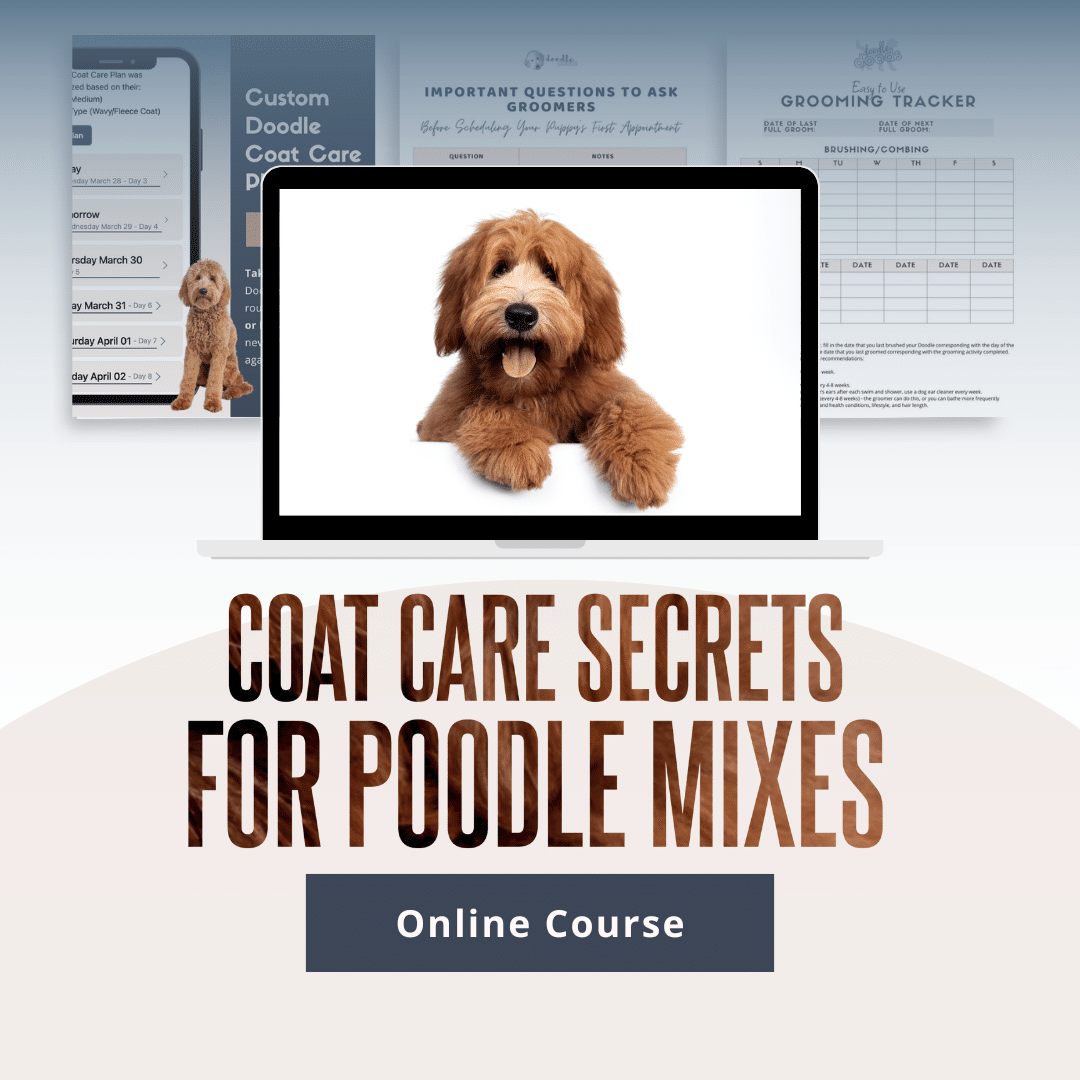
Discover the PROPER Doodle coat care routine that gets your pup to cooperate…helps you nip tangles in the bud…and gets groomers to do exactly what you want.
Plus, get $520 worth of Bonus Materials for FREE, including:- Doodle Parenthood Community and Support Group ($190 value)
- Custom Doodle Coat Care Plan Lifetime Access ($75 value)
- Easy to Use Doodle Grooming Tracker ($20 value)
- And MORE!

